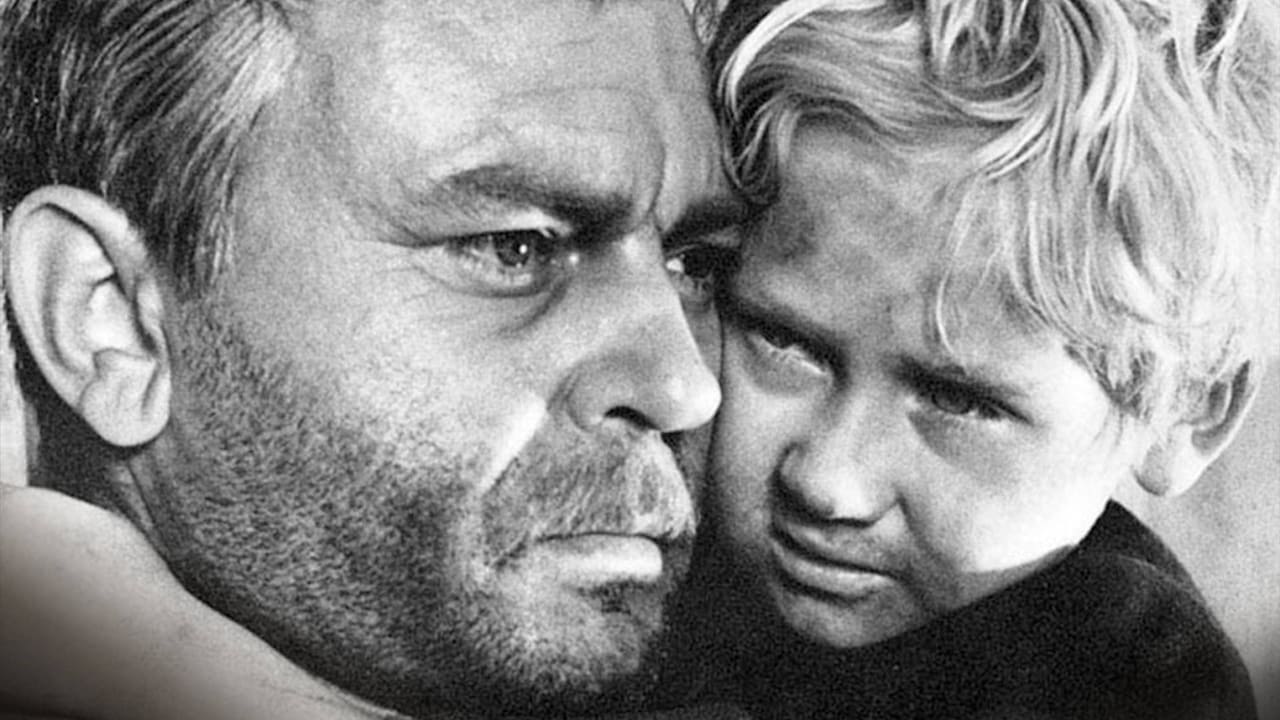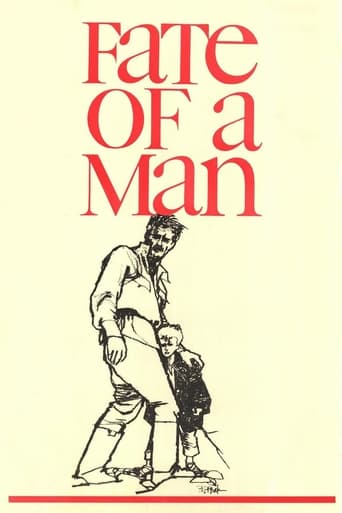TeenzTen
An action-packed slog
Kodie Bird
True to its essence, the characters remain on the same line and manage to entertain the viewer, each highlighting their own distinctive qualities or touches.
Scotty Burke
It is interesting even when nothing much happens, which is for most of its 3-hour running time. Read full review
Cristal
The movie really just wants to entertain people.
Kirpianuscus
the novel by Sholokhov. the performance of Bondarchuk. the wise script. the close-up. and the life of a man who seems be only new Job. a film who impress not only for the drama but for its profound poetry of small details. a confession. and the hope. the war's traces. and the future as new beginning. it is part of a long chain who defines the Soviet cinema as artistic treasure. it is, in same measure, fruit of a political situation. but, more important, it is a fine work. because it reflects human feelings, duties and pain out of ideological circle. because it is an universal story. and one of beautiful examples of high cinema. that could be all. not a great show but useful exercise about the force of art. and, sure, for the Eastern public, a travel in history, against wars, crisis, disasters. and cases of survive.
jhrclbpmar
The work is absolutely stunning visually, at times radical in its framing. It is perfectly understandable that since the film was made only 5 years after Stalin's death the political strictures under which it was made forced the director to be careful to avoid depicting the persecution suffered by returning Soviet POW's under his rule, but by focusing on the suffering they, and most particularly the protagonist, experienced as prisoners in German work camps and the steadfast and heroic endurance they maintained in the face of cruelty and hardship he is completely successful in politically rehabilitating them as patriots, both for their contemporaries and for Soviet posterity. A beautiful and at times quite moving film. Highly recommended.
Theo Robertson
I've seen a few Russian war films recently and noticed that they feel more like Hollywood war films . Both THE STAR and 9TH COMPANY suffer from this . COME AND SEE didn't . It was a brutal , unforgettable war film made during the late communist era of the Soviet Union showing the bestial atrocities forced upon the Soviet people . I did have high hopes that being a Soviet film rather than a Russian one DESTINY OF A MAN would show the suffering the Soviets endured from 1941-45 . Does it ? Yes to a degree but there's some faults in the story telling The story is told in flashback by Andrey Sokolov . He is taking his son for a walk in the countryside and meets a man and tells him of his wartime service . Conscripted in to the army as a driver he is captured by the Germans early in the war . He suffers deprivation as he's used as slave labour , sees comrades murdered by the Nazis , comes close death several times . Escapes and makes it back to his own lines where he's treated as a hero . He finds his wife and daughter died during an air raid and as the last days of the war take place his last child , a Red Army officer is killed in the Battle Of Berlin . Devastated Sokolov finds some comfort when he finds an orphan and adopts him as his son It's not a film that has a strong central plot . It is rather episodic but where it succeeds is showing the brutality of the Nazi regime against conquered people . Caputured officers , political commissars and Jews were shot out of hand and as Sokolov finds himself behind Nazi lines there's a scene where people go in to a camp with a large chimney bellowing smoke . The implication is stark and obvious - you enter via the front gate and leave via the chimney Ironically by drawing attention to the murderous intent of Nazism it leaves some plot holes involving Sokolov . He escapes from a forced labour detail and hides in the countryside for four days and is then recaptured . But would the Nazis allow an escaped prisoner to live ? Lkewise a brutal SS camp commander says he's going to execute Sokolov but then changes his mind because Sokolov can hold his drink There's another unlikelihood and that is when Sokolov escapes to the Soviet front lines kidnapping a German officer with important documents and being lauded as a hero , but would this have happened in real life ? It's a forgotten point of history that Soviet prisoners captured during the war would receive little sympathy from their leaders after being liberated . Many of them would be sent on a death march to Soviet gulags . It's disappointing that this aspect is never referred to , especially since Soviet leader Nikita Khrushchev instigated a de-Stalination program in the late 1950s at the time this film was made That said it's very much a humanist type of film showing the triumph of the human will in the face of great adversity and all these type of films suffer from the same flaw . The Japanese film trilogy THE HUMAN CONDITION is similar in some ways . But DESTINY OF A MAN doesn't suffer from the sugary artificial aspects of Hollywood and for that we should be thankful
tom neal
This first directorial effort from actor Bondarchuk (mainly known for his monumental War and Peace) shouldn't have starred the director. His ruddy countenance didn't convince me one bit he suffered through all the mishaps in his life during the Great War. Furthermore I found it very hard to believe the Germans went to so much effort to save the lives of these Untermenschen. There were good performances though and it is shot beautifully.Watch instead Come and See (Idi i Smotri) for a shattering experience of the Great War.

